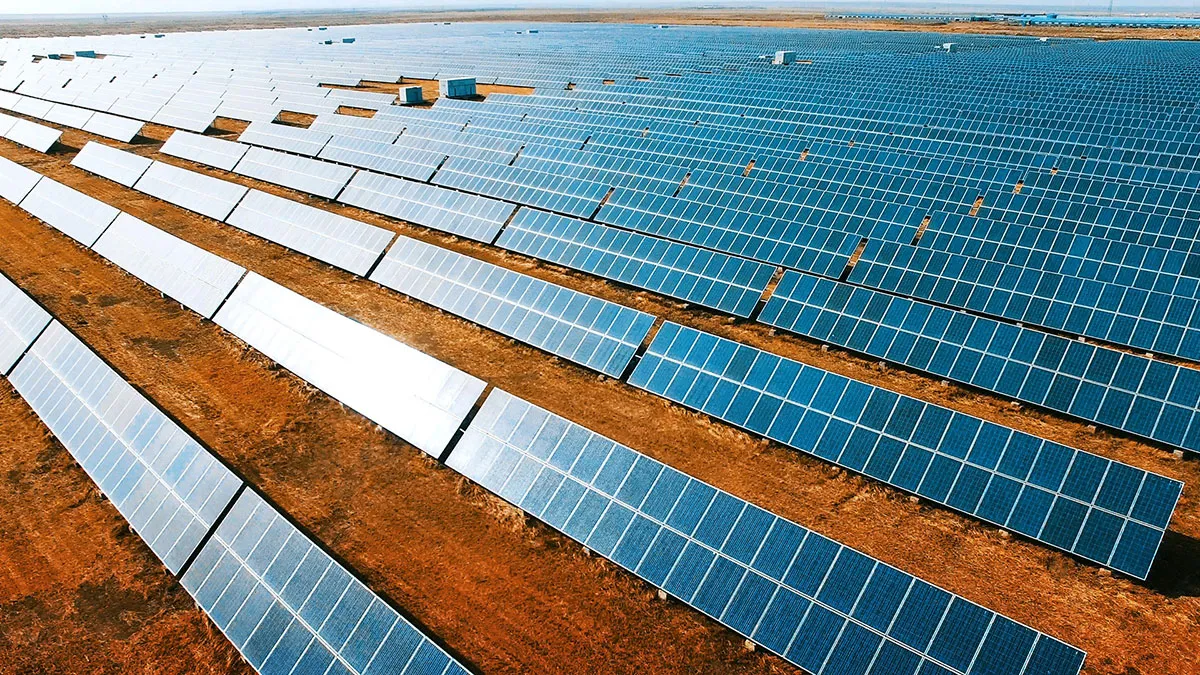A new digital bank called Ando promises to only invest customers' dollars in green initiatives, offering users a level of transparency its CEO says is lacking among traditional institutions.
"There are lots of different banks that say they are green, and that they have all these different green investments," said JP McNeill, who started the challenger bank after evaluating his family's carbon footprint. "But at the end of the day, are those green loans 1% of your total loans, or 2% of your total loans? That level of transparency creates accountability that I think will ultimately lead to changes in behavior."
San Diego-based Ando partners with Community Federal Savings Bank, based in New York City, to offer the Federal Deposit Insurance Corp. (FDIC)-insured bank accounts.
McNeill said Ando, which launched last month, partners with a coalition of banks that have existing green loan programs.
"We take our customers' deposits and then partner with community banks throughout the country, and they then use those deposits to invest in a variety of different green loans," he said.
Ando's goal is to invest customers' dollars in carbon-reducing projects such as clean energy, sustainable infrastructure and regenerative agriculture.
"Ultimately, it's consumers like you and me that have the ultimate say in where we want to park our money, and so the concept is that we want to partner with community banks who are growing their green asset portfolios," McNeill said. "We want to be supportive of that because we think that's in our collective best interest."
Ando, which offers a free savings and checking account, allows customers to view where their money is allocated through a feature in its mobile app called the Ando Impact Center.
The startup also calculates carbon reduction impact based on average balance. Ando says every $175 held in its account reduces carbon output equivalent to the work of one fully mature tree.
"The approach is first to provide these banking features to retail customers, and to get them to recognize that they ultimately have more influence and power than they think they have," McNeill said. "Their deposits are what enables a bank to operate."
Amid increasing calls by environmental groups for more corporate accountability on climate change, in addition to the Biden administration's focus on carbon-reducing policies, McNeill said he thinks more banks will adopt transparent policies regarding where they park customers' money.
"Having this dialogue with your customer base, I think, will improve financial performance," he said. "I think that the trust scores and net promoter scores within the financial services industry will increase as a result of some of these changes that are now possible, given that information and connectivity be can be utilized in ways that previously couldn't be utilized within the banking industry."
Thirty-five of the world's largest banks have facilitated $2.7 trillion in fossil fuel financing since 2016, according to a March 2020 report by Rainforest Action Network.
While the banking sector has come under fire for its connections to fossil fuel financing in recent years, some of the largest players have made commitments to reduce carbon emissions.
Goldman Sachs at the end of 2019 said it would commit $750 billion over 10 years toward projects focused on renewable energy, sustainable transportation and affordable education. Institutions from Barclays to JPMorgan Chase have also pledged to aim for net-zero carbon emissions by 2050.
Morgan Stanley, Citi and Bank of America joined a group aiming to standardize the way banks measure and reduce their climate impact. And regulators, from New York's Department of Financial Services to a CFTC panel laid out suggestions for banks to level up their climate risk reduction.
Ando joins several other banks looking to target the climate-conscious customer.
Los Angeles-based Aspiration has more than 1.7 million users and is backed by celebrity investors Leonardo DiCaprio and Orlando Bloom.
Climate First Bank, a St. Petersburg, Florida-based de novo focused on promoting sustainable business practices, filed for deposit insurance with the FDIC in October and expects to launch in the spring.











